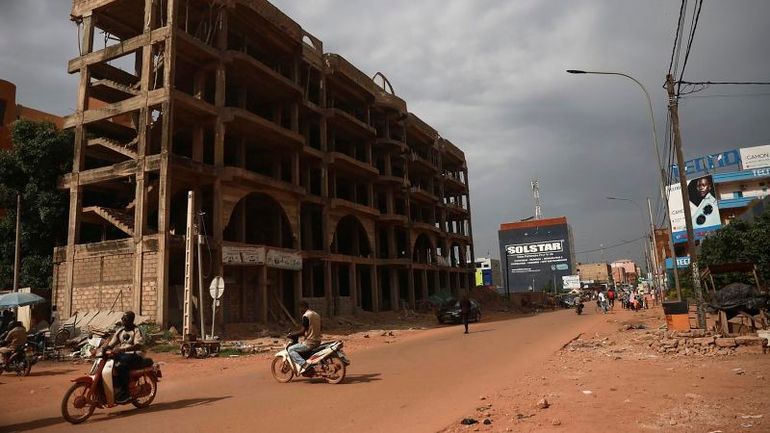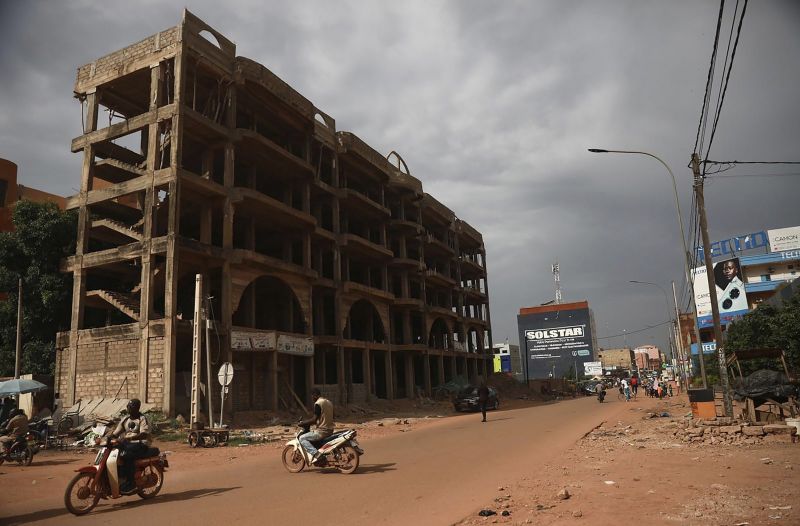
Burkina Faso military accused of executing over 220 villagers in February, report reveals

A recent report by Human Rights Watch (HRW) highlights the alleged summary execution of approximately 223 villagers by Burkina Faso's military in February. Among the victims were at least 56 children, as part of a campaign targeting civilians suspected of collaborating with jihadist militants. The shocking incident sheds light on the ongoing human rights concerns in the region.
Burkina Faso’s military reportedly carried out summary executions of approximately 223 villagers, including 56 children, in February. This was part of a campaign targeting civilians accused of collaborating with jihadist militants, according to Human Rights Watch (HRW).
HRW shared these findings in a report following their own investigation into the alleged killing of around 170 individuals in attacks on three villages in Burkina Faso’s northern Yatenga province at the end of February. The killings were first brought to attention by a regional prosecutor in the provincial capital Ouahigouya on March 1.
The Burkina Faso government spokesperson did not answer phone calls regarding the HRW report. The ministry of defense also did not respond to requests for comments on Facebook and email. Additionally, the telephone number listed for the ministry on its website was not valid.
The prosecutor stated that the attacks on the villages of Komsilga, Nodin, and Soro were carried out by unidentified assailants. An investigation has since been initiated to look into the incidents.
As with previous cases of extrajudicial killings in the country, no official findings have been released.
Retaliatory attacks
Rights organizations have accused the military in Burkina Faso, which is ruled by a junta, of targeting and killing civilians believed to be working with militants in revenge attacks.
These killings happened around the same time as a report aired on national TV on Feb. 25, discussing a significant assault on military sites in Yatenga. This region is one of many areas in the north of Burkina Faso and other Sahel countries that have been affected by violent Islamist groups.
Authorities have previously rejected claims of soldiers harming civilians.
Human Rights Watch conducted interviews with 23 individuals over the phone from Feb. 28 to March 31. These included witnesses to the incidents, local activists, and international organizations. The organization also confirmed the authenticity of videos shared by survivors.
Burkina Faso is an epicenter of violence carried out by Islamist militants linked to al-Qaeda and the Islamic State.
Burkina Faso is an epicenter of violence carried out by Islamist militants linked to al-Qaeda and the Islamic State.
Sophie Garcia/AP
Related article
Around 170 people were reportedly 'executed' in three villages in Burkina Faso, according to the public prosecutor.
Witnesses shared that over 100 soldiers first went to the village of Nodin and then proceeded to the nearby village of Soro on Feb. 25. It was reported that the soldiers killed residents as a form of retaliation for a jihadist attack on a military camp located approximately 25 km (15 miles) away.
Soldiers went from house to house, telling residents to leave and gathering them together before shooting at them, according to HRW. Witnesses provided this information in the report.
After the tragic events, survivors and those who assisted in burying the deceased created two lists containing the names of 223 individuals from Nodin and Soro who lost their lives. The majority of the victims were laid to rest in mass graves.
The Burkinabe army has been accused of committing mass atrocities against civilians in the name of fighting terrorism, with little accountability, according to a report by HRW executive director Tirana Hassan.
The watchdog organization has urged authorities to thoroughly investigate these massacres, calling for support from the African Union and the United Nations to ensure independence and impartiality in the process.
Burkina Faso, along with other Sahel nations, has been facing challenges in controlling Islamist insurgencies associated with al Qaeda and Islamic State. These insurgencies have been spreading from Mali since 2012, resulting in the deaths of thousands of people and displacing millions.
The lack of protection provided by authorities has led to frustrations among civilians. This has played a role in triggering two coups in Mali, two in Burkina Faso, and one in Niger since 2020.
Rights groups have also accused Mali’s army of using retaliatory tactics on civilians, which it denies.













